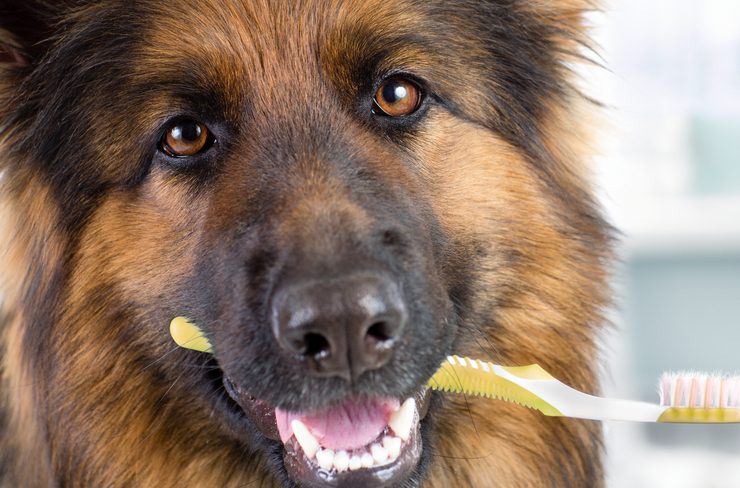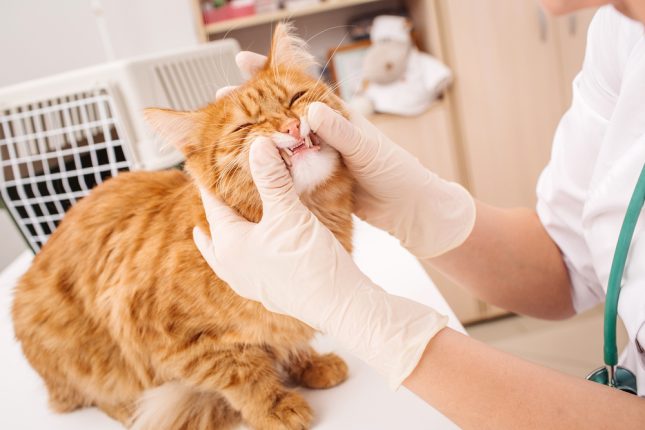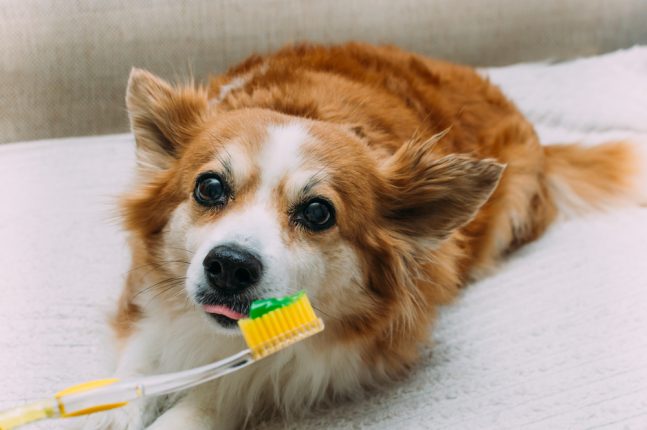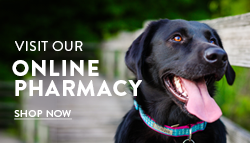
February marks Pet Dental Health Month, a crucial time to raise awareness about the importance of maintaining our furry companions’ oral health. While regular dental care is essential for preventing dental issues, emergencies can still arise unexpectedly. As responsible pet owners, it’s vital to be informed about common pet dental emergencies, recognize the signs, and know when to seek immediate veterinary care.

Common Pet Dental Emergencies: Recognizing Signs & Symptoms
Broken Teeth: Pets can break their teeth due to trauma, chewing on hard objects, or underlying dental diseases.
• Pawing at the Mouth: Pets may use their paws to try to alleviate discomfort or indicate pain in the mouth area.
• Reluctance to Eat: Pets may show hesitation or refusal to eat due to the pain caused by the broken tooth.
• Drooling: Excessive drooling can occur as a response to pain or irritation in the mouth.
• Bleeding from the Mouth: Visible bleeding or blood stains on toys or bedding can indicate a broken tooth.
Tooth Fractures: Fractures can occur in any part of the tooth and may expose the sensitive pulp, leading to pain and potential infection.
• Increased Sensitivity: Pets may react strongly to touch or temperature changes around the fractured tooth.
• Reluctance to Eat: Like with broken teeth, pets may show reluctance to eat due to discomfort.
• Visible Fracture Lines: In some cases, you may be able to see visible cracks or fractures on the tooth’s surface.
Oral Bleeding: Bleeding from the mouth can result from various dental issues such as gum disease, oral tumors, or trauma.
• Persistent Bleeding: Continuous bleeding from the mouth, which may appear as droplets or stains, can indicate oral bleeding.
• Foul Odor: Oral bleeding often accompanies bad breath, which can indicate underlying dental issues.
• Difficulty Eating: Pets may struggle to eat or show aversion to food due to pain or discomfort.
Tooth Dislocation: Pets, especially dogs, may experience tooth dislocation or avulsion due to accidents or rough play. This condition requires immediate attention to prevent complications and alleviate pain.
• Visible Tooth Displacement: You may notice a tooth that is out of its normal position or missing entirely.
• Pain or Discomfort: Pets may exhibit signs of pain, such as whimpering, whining, or avoiding chewing on one side of the mouth.
• Bleeding or Swelling: Dislocation can cause bleeding or swelling around the affected tooth or gum area.
Oral Infections: Untreated dental problems can progress to oral infections, causing swelling, abscesses, and systemic illness.
• Facial Swelling: Swelling around the face or jaw area can indicate an underlying infection.
• Pus Discharge: Visible discharge or pus around the gums or teeth is a sign of infection.
• Loss of Appetite and Lethargy: Oral infections can cause pets to feel unwell, leading to a decreased appetite and reduced activity levels.
As pet owners, it’s crucial to monitor our pets for any signs of dental distress and act promptly if we notice abnormalities. Delaying treatment for dental emergencies can exacerbate the issue and compromise our pets’ overall health and well-being.
Protect Your Pet’s Smile: Trust Eastwaye Veterinary Clinic for Emergency Dental Care
If you suspect your pet is experiencing a dental emergency, don’t hesitate to seek immediate veterinary care. In Goldsboro, North Carolina, pet owners can trust Eastwaye Veterinary Clinic for prompt and compassionate emergency dental services. Our experienced veterinarians are equipped to handle a wide range of dental emergencies, ensuring your pet receives the care they need to recover swiftly.
Remember, proactive dental care is key to preventing dental emergencies in pets. Schedule regular dental check-ups for your furry friends and maintain good oral hygiene practices at home. Together, we can safeguard our pets’ smiles and promote their overall health and happiness.
This Pet Dental Health Month, let’s prioritize our pets’ oral health and provide them with the care they deserve. Contact Eastwaye Veterinary Clinic for emergency dental care and help your pet maintain a healthy, radiant smile for years to come!




